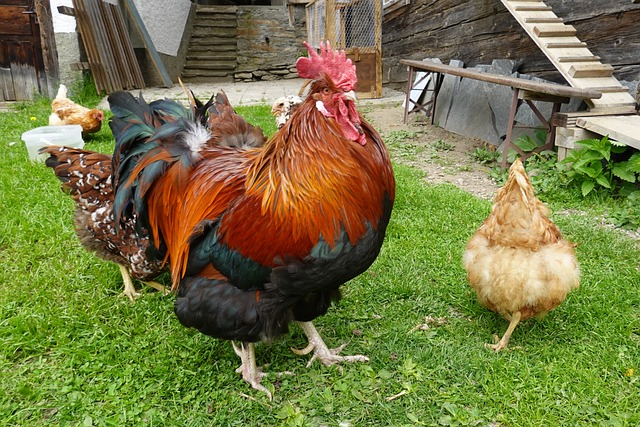Farm Equipment for Small Farms and Homesteads
Small farms and homesteads depend on a thoughtful mix of equipment that matches scale, terrain, and the animals or crops being managed. From hand tools to compact machinery, choosing durable, multi-use items reduces daily labor and supports animal welfare. This article outlines practical, scale-appropriate equipment choices and maintenance tips for those keeping chickens, tending a backyard garden, or running a small farm operation.

What equipment is needed for chicken care?
Caring for chickens requires reliable basics: feeders, waterers, nest boxes, and perches. Choose feeders and waterers sized for flock number to reduce waste and contamination. Nest boxes should be easy to access for egg collection and cleaning; a 12x12-inch interior is a common guideline for standard hens. Consider tools for routine tasks—egg baskets, grit containers, and scales for monitoring bird weight. Biosecurity items such as dedicated boots, hand sanitizer, and foot mats help limit disease spread between a coop and other farm areas.
How to outfit a secure coop?
A secure coop protects birds from predators and weather. Solid latches, hardware cloth instead of chicken wire, and elevated foundations reduce risks from raccoons and foxes. Ventilation is important to prevent moisture buildup while minimizing drafts in colder months. Insulation and a simple heat source may be necessary in regions with extreme winter temperatures, but must be installed to avoid fire risk. Plan for easy cleaning with removable droppings trays or a layout that permits access for routine maintenance and repairs.
Which farm tools suit small-scale operations?
For a small farm, prioritize tools that cover planting, harvest, and maintenance without excess cost or complexity. Durable hand tools—shovels, hoes, rakes, and pruning shears—are indispensable. A compact tractor or garden tractor can add functionality with attachments like a loader, mower, or tiller if acreage and budget justify it. Wheelbarrows, a good set of wrenches, and a basic welder or repair kit extend equipment lifespan. Storage solutions such as sheds and pallets keep tools dry and organized, reducing replacement frequency.
What backyard gear supports kitchen gardens and urban homesteads?
Backyard gardeners and urban homesteaders benefit from space-efficient gear: raised-bed frames, compact tillers, drip irrigation kits, and season extenders like hoop houses. Compost bins or tumblers turn kitchen and garden waste into soil amendment for raised beds. For those keeping poultry in a backyard setting, portable or modular coops and movable pens help manage forage and reduce localized soil impact. Small-scale refrigeration, seed-saving kits, and multi-use hand tools help make the most of limited space while supporting sustainable practices.
Which homestead machines reduce manual work?
On a homestead, select machines that scale to chores without creating unnecessary complexity. Examples include an upright mower or brush cutter for pasture maintenance, a post-hole digger for fencing, and a small utility vehicle or trailer for moving feed, hay, and tools. For livestock, consider mechanical feeders or water delivery systems to streamline daily routines. Power washers, battery-operated tools, and a dependable generator can make maintenance tasks faster and safer. Regularly scheduled maintenance and straightforward operator manuals keep machines reliable.
Conclusion
Choosing farm equipment involves balancing immediate needs, long-term durability, and the scale of your operation. For chickens and coops, focus on secure construction, easy cleaning, and appropriate feeders and waterers. For farms and homesteads, prioritize multi-use tools and machines that match acreage and labor capacity. Backyard and urban homestead operators will typically favor compact, modular gear that supports season extension and soil health. Across all contexts, invest time in proper storage, routine maintenance, and basic safety gear—gloves, eye protection, and clear operating instructions for powered equipment. When considering purchases, consult local services in your area for repairs, parts, or equipment rental to test functionality before committing to larger machines. Thoughtful selection and upkeep of equipment lower long-term costs, improve animal and crop health, and make daily farm tasks more manageable and sustainable.






